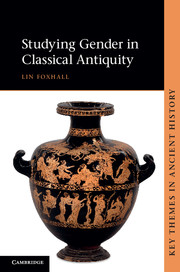Book contents
Chapter 6 - Space
Published online by Cambridge University Press: 05 May 2013
Summary
SPACE AND SOCIAL INTERACTION
Space, like gender, is a culturally constructed aspect of human societies which is entangled with and encompasses the physical world beyond human control. Space is not simply a container for social life. Rather, the physicality of mountains, valleys, seashore and plain is inextricably incorporated into the humanly designed and conceptualized space that is part of everyday life. Much of this space is, literally, built space, where people have modified the physical world to suit their social needs by constructing houses, streets, market squares, temples, fields, threshing floors and many other structures which shape, channel and constrain their own physical environment. A major part of this modification is constructing agreed pathways for moving through space, and coming to a consensus on how they should be used (for example, keeping cars out of pedestrian precincts and draft animals out of dining rooms). But more than this, space can be defined by style of movement, as well as the act of movement itself; travelling through the streets in a sedan chair surrounded by servants creates a spatial separation from ordinary pedestrians. Clothing partitions the body from the space of the rest of the world, and may shield people from their surroundings: the veiled woman creates a space to block out intrusive male gazes (Llewellyn-Jones 2003). Gesture, manner, glances and other behaviours can create, shape or traverse spatial barriers. Space can also be used differently over time by different people. In many societies, including those of the classical world (M. Scott 2012), the gendered use of space is very complicated and has much more to do with how and when different kinds of men and women might use, construct and traverse space in a wide variety of ways than about whether spaces in themselves can be considered ‘gendered’.
- Type
- Chapter
- Information
- Studying Gender in Classical Antiquity , pp. 114 - 136Publisher: Cambridge University PressPrint publication year: 2013



